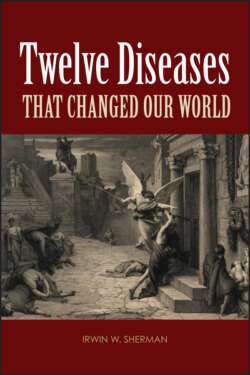Читать книгу Twelve Diseases that Changed Our World - Irwin W. Sherman - Страница 14
Consequences
ОглавлениеVictoria and Albert were prolific parents, and their offspring married into almost all the royal families of Europe, which were notorious for marrying among themselves. Queen Victoria sowed the seeds that ultimately led to the demise of several European dynasties. Since the hemophilia gene is passed as a recessive rather than a dominant gene, and since affected individuals have tended to die young until fairly recently, this gene has been eliminated from most of Queen Victoria's descendants. The growth of constitutional monarchies and republics means that the gene no longer plays a role in world affairs. The gene may still exist in some descendants of Prince Leopold, Duke of Albany, and of Queen Victoria Eugenie of Spain, but these descendants are all commoners and will not contract dynastic marriages with other descendants of Queen Victoria. Porphyria, on the other hand, as a disease transmitted via a dominant gene, is still being passed from one royal generation to the next, although in none of these persons has it had the profound effects that it had on the Houses of Stuart and Hanover. Unless the present House of Windsor harbors an as yet undetected carrier, the royal curse of porphyria may have finally reached the end of the line.
Porphyria and hemophilia illustrate how closely intertwined are disease and culture. Appreciation of this nexus can enable a better understanding of and responses to other illnesses such as the potato blight (chapter 2), the emergence of drug-resistant tuberculosis (chapter 7), and the pandemics of influenza (chapter 10) and AIDS (chapter 11). When we consider the world of the past, a time when there were no possible interventions for the “inborn errors” of porphyria and hemophilia, we can see how a disease can dramatically affect the lives of millions of people for decades. And illness, contagious or not, when present at a critical time, can affect the conduct of wars, the nature of immigration policies, the manner in which the sick are regarded by the remainder of society, and the political fortunes of nations; it can also serve to promote new strategies to protect the public health while at the same time ensuring that individual liberty is not compromised. The stories of porphyria, hemophilia, and President Kennedy's Addison's disease are tantalizing: they tempt speculation on how events in the world during the past 150 years might have turned out differently if political leaders and prominent members of royal families had not been plagued with defective genes.
